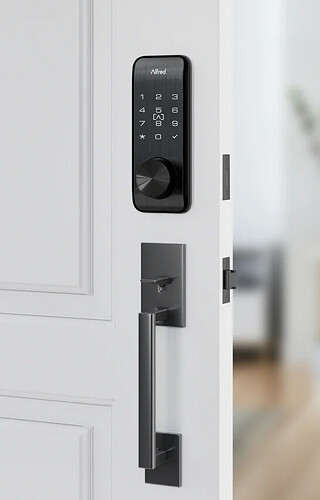Sure. That's an easy one as ST_Anything already supports the DS18B20 Temperature sensor, thus no source code changes are necessary (i.e. no Pull Request is needed.)
You'll need to add an #include file to your Arduino Mega based sketch as shown below
#include <PS_DS18B20_Temperature.h> //Implements a Polling Sesnor (PS) to measure Temperature via DS18B20 libraries
and then add a device that uses the DS18B20 as shown below
static st::PS_DS18B20_Temperature sensor2(F("temperature1"), 15, 0, PIN_TEMPERATURE_1, false, 10, 1);
You can look at an example sketch that already uses this sensor for the ESP8266 by looking at the ST_Anything_Multiples_ESP8266WiFi.ino example.
Also, read the documentation for the proper use and options for this sensor, which are included at the top of every device's .h and .cpp source code files.
//******************************************************************************************
// File: PS_DS18B20_Temperature.h
// Author: Dan G Ogorchock
//
// Summary: PS_DS18B20_Temperature is a class which implements both the SmartThings "Temperature Measurement" capability.
// It inherits from the st::PollingSensor class. The current version uses a digital pin to measure the
// temperature from a Dallas Semiconductor One Wire DS18B20 series sensor.
//
// Create an instance of this class in your sketch's global variable section
// For Example: st::PS_DS18B20_Temperature sensor1(F("temperature1"), 120, 0, PIN_TEMPERATURE, false); (for a single sensor)
// st::PS_DS18B20_Temperature sensor1(F("temperature"), 120, 0, PIN_TEMPERATURE, false, 10, 3); (for 3 sensors)
//
// st::PS_DS18B20_Temperature() constructor requires the following arguments
// - String &name - REQUIRED - the name of the object - either "temperature1" for a single sensor, or "temperature" for multiple sensors
// - long interval - REQUIRED - the polling interval in seconds
// - long offset - REQUIRED - the polling interval offset in seconds - used to prevent all polling sensors from executing at the same time
// - byte pin - REQUIRED - the Arduino Pin to be used for the One-Wire DS18B20 sensor conenction
// - bool In_C - OPTIONAL - true = Report Celsius, false = Report Farenheit (Farentheit is the default)
// - byte resolution - OPTIONAL - DS18B20 sensor resolution in bits. 9, 10, 11, or 12. Defaults to 10 for decent accuracy and performance
// - byte num_sensors - OPTIONAL - number of OneWire DS18B20 sensors attached to OneWire bus - Defaults to 1
// - byte sensorStartingNum - OPTIONAL - Starting number for sending temperature sensor data when using multiple sensors on one pin - Defaults to 1
Hope that helps! Let me know if you have any questions.


